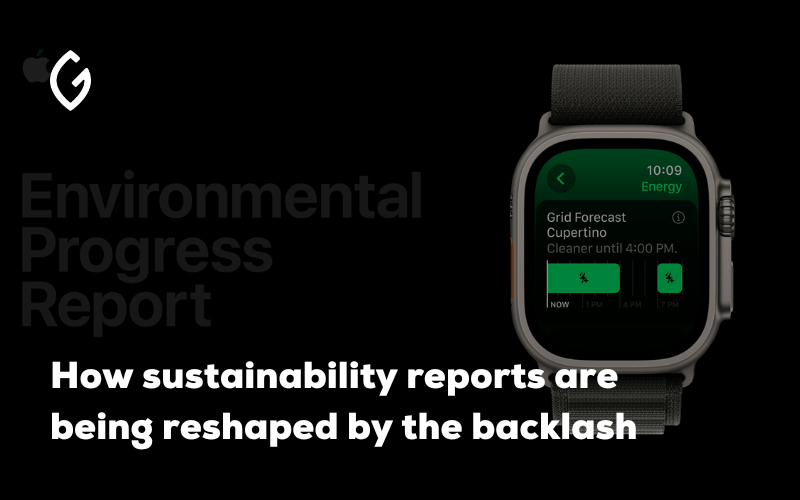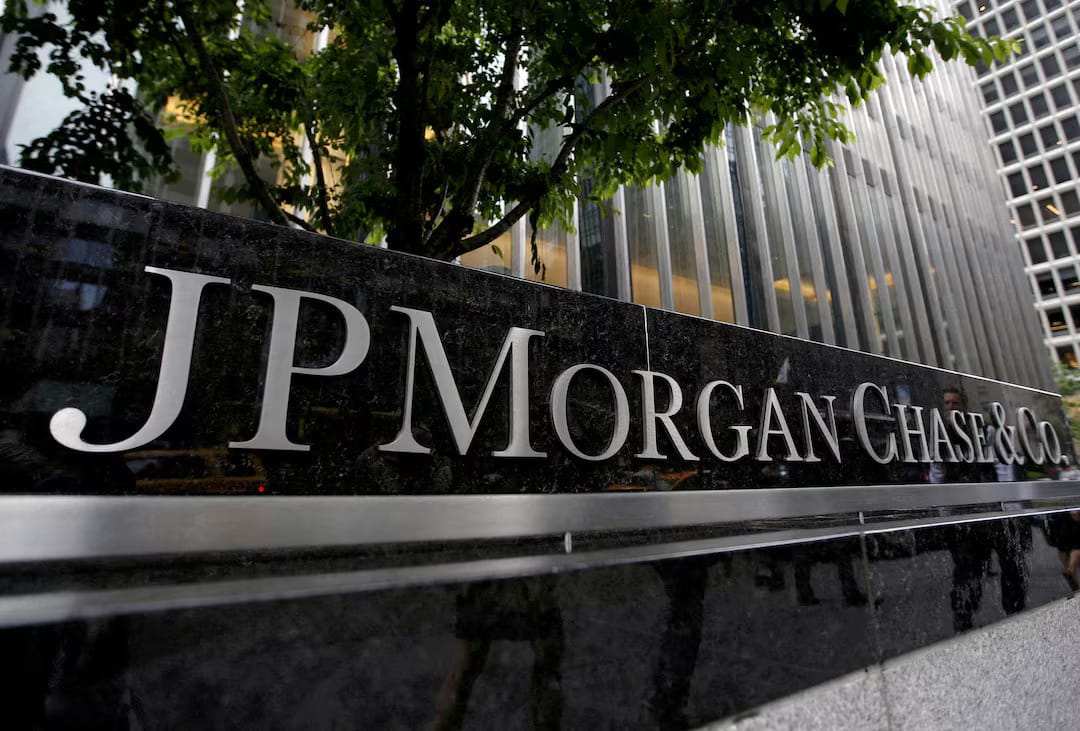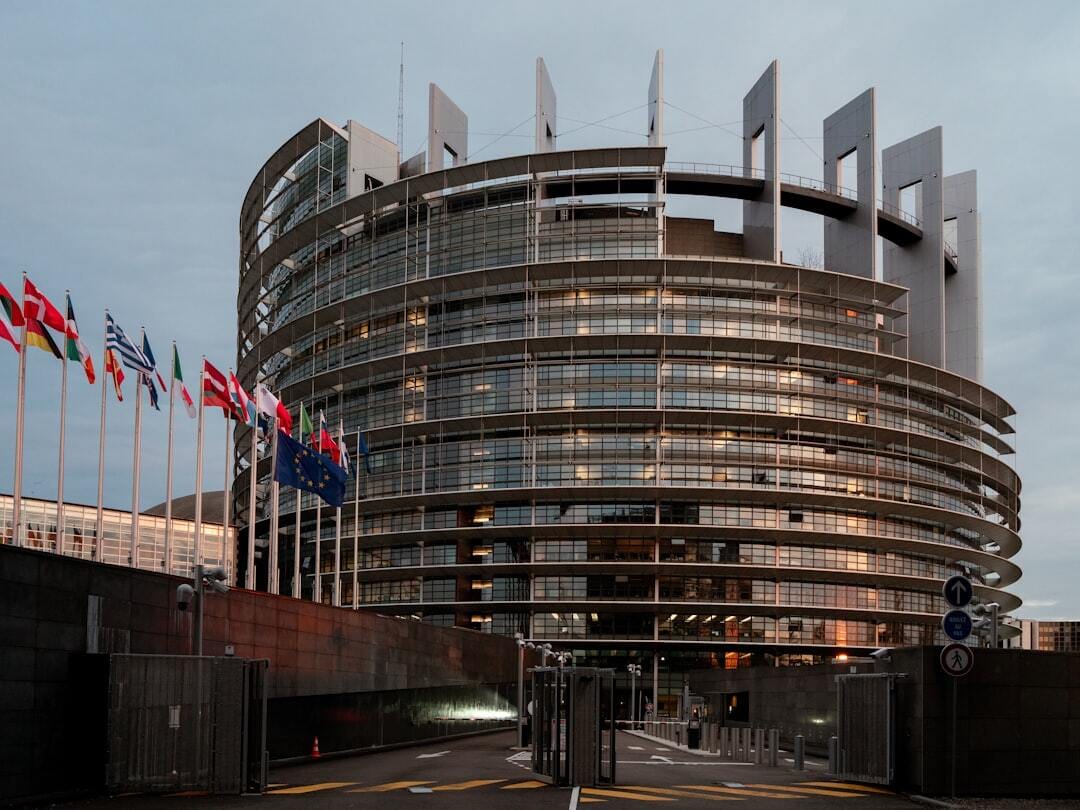- Green Digest
- Posts
- What's Happening in Sustainability & ESG (Week Recap 01.07 - 07.07) 🌎
What's Happening in Sustainability & ESG (Week Recap 01.07 - 07.07) 🌎
How sustainability reports are being reshaped by the backlash, and other news

Today’s newsletter is brought to you by
This week’s read time: 8 minutes
Welcome to this edition of Green Digest, where you will get updated about everything happening in the Sustainability & ESG space in less than 10 minutes. 🌎
We go through tons of articles and data from the most reliable sources, filter & simplify them, and serve them to you in bite-sized chunks every week. 🍀
In this edition, we’ll cover:
• How sustainability reports are being reshaped by the backlash 📑
• The European Commission extended EFRAG’s ESRS revision deadline to November 30, 2025 🇪🇺
• EU member states and companies call for further changes and delays to the deforestation law 🇪🇺
• The ISSB released draft updates to sector-specific SASB standards 📑
• Climeworks raised $162 million to scale its direct air capture technology 🟢
• and other news 🌍
PRESENTED BY CLIMATIZE
$9M+ invested via Climatize in U.S. renewable energy projects, starting at $10
$9M+ invested via Climatize in U.S. renewable energy projects, starting at $10.⚡
Over $300k was raised within the last month, and we hit our highest Daily Active Users to date, all helping us surpass $9M invested through our investment platform. A strong signal that momentum around impact investing at Climatize is growing.
Ready to Climatize? 💚
You can join over 2,280 members on our growing community. As of June 2025, the projects have returned over $1.8M in principal + interest to investors. Past performance doesn’t guarantee future results. Download our free guide to begin your journey as an impact investor.
Use the referral code to get $50 in investment credits.
Climatize Earth Securities LLC is a Funding Portal registered with the Securities and Exchange Commission (“SEC”) and Financial Industry Regulatory Authority (“FINRA”), not endorsed by the SEC and FINRA. Investing in Crowdfunded offerings involves risk. You should review the risks of a particular investment, either alone or with a personal advisor before investing, and only invest if you can afford to lose your investment.
THIS WEEK’S TOP NEWS
Regulatory Oversight & Industry Insights

(Thought piece by Peter Lupoff on Trellis) Just as 90% of S&P 500 companies now publish ESG reports, a growing anti-ESG backlash has paradoxically made these disclosures more valuable - not as declarations of corporate values, but as reflections of true strategic priorities. Amid political pressure, companies have scaled back ESG language (e.g., DEI mentions down 70%, climate references down 30%), and ESG funds saw $8 billion in withdrawals in Q1 2025 alone. Still, reporting hasn’t slowed; instead, it’s become more detailed and regulatory-driven. This shift has turned sustainability reports into powerful tools for investors to assess which companies are truly embedding ESG into operations versus those retreating at the first sign of risk.
The backlash is acting as a filter, revealing which firms see ESG as core to long-term strategy. For example, emissions-related shareholder proposals remain resilient, signaling that climate remains a priority for engaged investors. Companies persisting with disclosures despite potential backlash signal strategic conviction and operational resilience. As public proxy fights give way to private investor dialogues, the value of ESG reports has shifted: they’re no longer about signaling virtue but about exposing a company’s capacity to think long-term, manage risk, and execute strategy. In this new landscape, investors are urged to focus less on rhetoric and more on what real actions survive the political gauntlet.
PRESENTED BY REUTERS EVENTS
Reuters Events: Sustainability Reporting USA 2025 (October 9–10, Boston)
Now a cornerstone in the ESG calendar, Reuters Events: Sustainability Reporting USA 2025 (October 9–10, Boston) convenes 300+ senior ESG, finance, and legal leaders to shape the next chapter of sustainability disclosure. With a legacy of delivering practical, actionable content, the event equips professionals to navigate regulatory change, from SEC climate rulings to CSRD alignment. Learn how AI and data governance can elevate your ESG strategy, and how to communicate transparently with investors and stakeholders. With 50+ executive speakers and 65% senior attendance, this is your opportunity to build on trusted foundations and lead the future of sustainable reporting.
MORE INTERESTING NEWS
Latest developments, reports, insights, and trends
🇪🇺 The European Commission extended the deadline for EFRAG to submit its revised technical advice on the European Sustainability Reporting Standards (ESRS) to November 30, 2025, allowing for a longer public consultation and improved quality. The Commission emphasized no new mandatory datapoints should be added and that interoperability with ISSB standards should be preserved unless simplification is hindered. EFRAG will now run a 60-day consultation beginning at the end of July.
🇪🇺 In other EU news:
Eighteen EU member states have called for further changes to the bloc’s anti-deforestation law, warning that its strict due diligence and traceability requirements could disadvantage local producers and prompt relocation abroad, a letter seen by Reuters showed. Set to take effect in December, the law requires companies to prove that products like soy, beef, and palm oil are not linked to deforestation. In a joint letter, countries including Italy, Sweden, and Poland urged the European Commission to exempt low-risk nations and simplify the rules, citing concerns over feasibility and competitiveness. The law, already delayed once, targets the EU’s role in the 10% of global deforestation driven by its imports.
One of the world's largest snacks companies, Mondelez, is also calling for a one-year delay to the EU’s deforestation law, citing challenges in cocoa supply chains such as high prices, production drops, and digital infrastructure gaps in origin countries. While supporting the regulation’s goals, a company executive said the delay is needed for effective implementation, not to weaken ambition. The EU law, set for December 2025, requires companies to prove their products like cocoa and soy are deforestation-free or face fines. Similar concerns have been raised by Nestlé, Mars, and Ferrero.
The European Commission announced plans to compensate EU exporters for CO₂ costs incurred under the bloc’s climate rules, aiming to prevent industrial relocation and protect competitiveness. The compensation, expected to reach €70 million in 2025, will be funded by revenues from the EU’s upcoming carbon border tariff, projected to generate €2.1 billion by 2030. The support targets industries like steel and aluminum, which are losing free carbon permits and facing higher emissions costs. The scheme, tied to the loss of these permits, will be proposed later this year, alongside safeguards to prevent misuse by foreign companies.
The EU will also develop rules for “nature credits” to financially reward farmers and foresters for protecting ecosystems, aiming to close a €37 billion annual biodiversity funding gap without adding pressure to public budgets. An expert group of stakeholders will be formed this year to design certification and governance standards, with a pilot project funded by 2027. These credits—earned through activities like wetland restoration or regenerative farming—could be sold to companies or countries. While modeled on carbon credits, the EU emphasized this is about rewarding stewardship, not commodifying nature, and acknowledged the lessons from recent carbon credit controversies.
📑 The ISSB released new exposure drafts proposing updates to the sector-specific SASB sustainability reporting standards, focusing on nine priority industries including oil and gas, mining, coal, and processed foods, while aligning metrics across 41 industries on issues like water and worker safety. These drafts aim to modernize SASB standards for better alignment with ISSB’s IFRS S1 and S2 and enhance international applicability. The public consultation is open until November 30, with final updates expected in 2026. The initiative also emphasizes interoperability with frameworks like GRI, EFRAG, and TNFD.
📑 The Global Reporting Initiative (GRI) also released two new draft standards focused on labor issues, aiming to enhance corporate disclosures on non-discrimination, equal opportunity, diversity, and inclusion. The drafts include metrics on discrimination incidents and the integration of diversity policies into business operations. The updates seek to help organizations disclose their impacts on workers and demonstrate how they uphold labor rights. A public consultation is open through September 15, 2025, with finalized standards expected from mid-2026.
WHAT ARE COMPANIES DOING?
Corporate sustainability, new tools and services & companies in the news

Credit: REUTERS/Mike Segar
📊 JPMorgan’s blockchain unit, Kinexys, is developing a blockchain-based application to tokenize global carbon credits in partnership with S&P Global, EcoRegistry, and the International Carbon Registry, aiming to address transparency, standardization, and market fragmentation issues in the voluntary carbon market. The initiative seeks to create a unified, tokenized ecosystem that enables seamless credit transfers, enhances price and data transparency, and boosts market liquidity.
📊 Allianz Commercial launched CAReS (Climate Adaptation & Resilience Services), a new platform to help businesses assess and mitigate physical climate risks. The platform combines a self-serve tool and tailored consulting services, enabling companies to evaluate risk exposure across assets and supply chains and translate climate threats into financial loss estimates. CAReS offers dashboards for 12 climate perils and timeframes through 2080, alongside in-depth services such as site surveys, vulnerability assessments, and loss quantification, aiming to boost corporate resilience and support climate-related disclosures.
🟢 Phlair and Carbon Removal announced plans to build Europe’s first large-scale direct air capture (DAC) and CO₂ storage facility in Øygarden, Norway, targeting 60,000 tonnes of carbon removal annually in its first phase and scaling to 500,000 tonnes. Located near the Northern Lights CO₂ storage project, the plant will run on solar energy and support grid flexibility, aiming to demonstrate how DAC can scale sustainably alongside renewables.
EVERYTHING FINANCE
Sustainable finance, funding rounds, acquisitions & private equity deals

Ibox building in Paris, seat of ESMA | Credit: ESMA/Javier Callejas
🇪🇺 The European Commission adopted measures to simplify the EU Taxonomy and reduce reporting burdens for companies, including cutting up to 89% of required datapoints and exempting firms from assessing taxonomy alignment for non-material activities. The updates, part of the broader Omnibus I package, will apply from 2026 and aim to make the sustainable finance framework more growth-friendly and practical. Key changes allow companies to skip taxonomy assessments for economic activities that account for less than 10% of their financials, introduce simplified reporting for non-material operating expenses, and ease criteria for certain environmental objectives.
In related news, Europe’s top financial regulators—the ESMA, EBA, and EIOPA—released draft joint guidelines on integrating ESG risks into supervisory stress tests for banks and insurers. Aimed at harmonizing practices across the EU, the guidelines recommend a phased approach, initially focusing on climate-related risks before expanding to broader ESG factors as data improves. A public consultation is open until September 19, with final guidelines expected by early 2026.
ESMA also released a new thematic note to guide issuers and fund managers on avoiding greenwashing in sustainability-related claims. Focused on ESG credentials often used in retail investor communications—like labels, awards, and industry affiliations—the note warns these can be misleading if they overstate significance or lack proper context. While not setting new rules, ESMA outlines four key principles for sustainability claims: they must be Accurate, Accessible, Substantiated, and Up to Date.
🇱🇺 The Luxembourg Stock Exchange launched the Transition Finance Gateway, a new platform providing climate transition data on over 500 non-financial corporate debt issuers to enhance transparency and comparability for investors. It aggregates data from CDP, Net Zero Tracker, SBTi, and TPI Centre, offering issuer-specific transition strategy pages and coverage of emerging markets and hard-to-abate sectors. The initiative aims to close the accountability gap in climate finance and support smarter investment decisions.
🟢 Mars launched a $250 million Sustainability Investment Fund to back solutions that tackle key environmental challenges across its value chain, including agriculture, ingredients, and packaging. The fund will support both direct investments and investment vehicles in areas like low-emission farming, healthier raw materials, and circular packaging alternatives.
🏦 The Inter-American Development Bank (IDB) unveiled new tools to mobilize over $11 billion in sustainable finance and help countries manage currency volatility and climate risks. Key initiatives include the launch of the FX EDGE platform, which provides credit support when local currencies crash, encouraging private investment by reducing financial uncertainty. The IDB also plans to expand Amazonia Bonds (up to $1 billion) to support rainforest protection, enlarge its $5 billion emergency relief fund, and roll out climate-resilient debt clauses that pause loan payments after disasters.
📈 UBS announced that its SDG Outcomes Fund, developed with Bridges Outcomes Partnerships, has reached its $100 million fundraising target to support outcomes-based financing in low- and middle-income countries. Backed by an $18 million anchor investment from the European Investment Bank, the Article 9 fund focuses on health, education, women’s economic empowerment, and climate action, particularly in Africa and emerging markets. Using a blended finance model, UBS provides first-loss capital while BOP manages delivery and partnerships. The fund pays for programs only when measurable outcomes are achieved, and it has already generated $13.5 million in verified impact payments.
⚡️ Eni Next, the venture capital arm of Italian energy giant Eni, partnered with asset manager Azimut to launch a €100 million clean tech venture fund aimed at accelerating energy innovation. Set to debut in September 2025 under the ELTIF 2.0 framework, the Luxembourg-based fund will target startups and scale-ups focused on decarbonization, energy efficiency, sustainable mobility, and the circular economy.
Funding rounds:
🟢 Climeworks raised $162 million in new equity funding to scale its direct air capture (DAC) technology and expand its carbon removal portfolio. The Zurich-based company will use the funds to reduce removal costs and grow its service offering, Climeworks Solutions, which provides clients with tailored carbon removal portfolios across multiple technologies. The round brings Climeworks’ total funding to over $1 billion.
🟢 Terra CO2 raised $124.5 million in a Series B round to scale production of its low-carbon cement alternatives. The funding will support the construction of a 240,000-ton-per-year facility in Dallas-Fort Worth and expansion of its team and product portfolio. Terra’s OPUS materials can replace up to 100% of Portland cement.
🚚 HIVED raised $42 million in Series B funding to scale its all-electric, parcel delivery network, aiming to revolutionize e-commerce logistics with speed, sustainability, and tech-driven precision. Founded in 2021, the company uses its proprietary HIVEDmind platform to manage deliveries via dynamic routing, real-time tracking, and live data, maintaining a 99% on-time rate and winning clients like Zara, Nespresso, and John Lewis.
⚡️ Dexter Energy raised €23 million in a Series C round to expand its forecasting and trading optimisation tools for renewable energy and batteries. Dexter’s tools aim to help renewable producers overcome market volatility, pricing pressure, and rising balancing costs by automating trading across day-ahead, intraday, and imbalance markets.
Did you like today's newsletter? |
PARTNER WITH US

Increase your brand awareness and visibility by reaching the right audience and target market. Showcase your company, solutions, services, products, reports, surveys, events, or other content in front of our highly targeted audience of +4,350 Sustainability & ESG professionals. Contact us at [email protected] if you think we can partner in some way.



